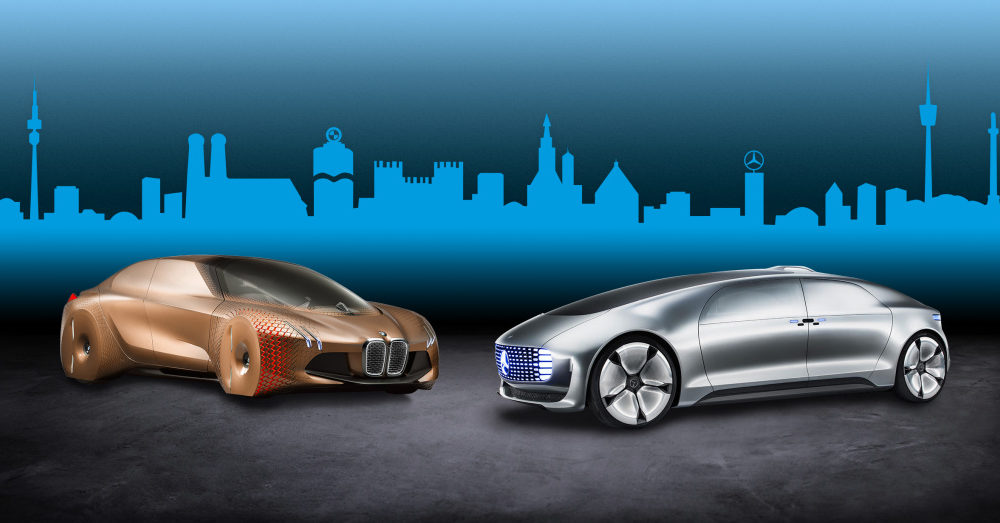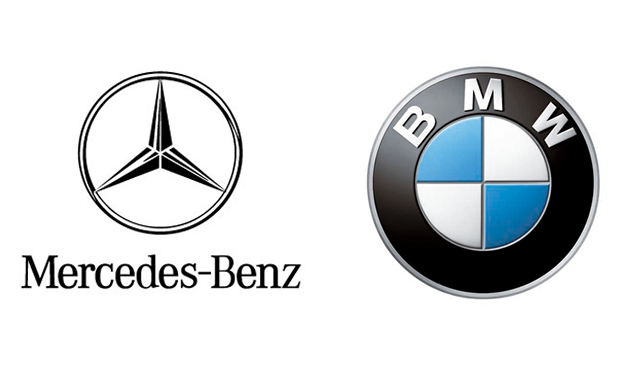BMW AG recently reported that the car manufacturer sold 21,297 of its flagship-brand cars in the U.S. this July. The problem is, those numbers are not nearly as straightforward as they appear.
In an effort to edge out Mercedes-Benz, hundreds of BMWs were counted as sold in July, even though they remain in showroom inventories and according to dealerships are still being advertised for sale as new cars.
The reason for the strange reporting is that the company made a special offer to dealers on July 31. For only that day, dealers were able to receive discounts of up to $7,000 per 2012MY car as long as the vehicle was reported sold that day.
As The Wall Street Journal reported, the number of such deals raises questions about the accuracy of the company’s reported sales, a closely watched figure as BMW and rival Mercedes-Benz vie for the title of top-selling U.S. luxury brand.
Kenn Sparks, a BMW spokesman, said its July sales total includes vehicles that were purchased by its dealers for use as what are known as “demos”— cars used on lots for test drives.
He declined to say how many reported sales were demos, saying BMW doesn’t release the figure. “These vehicles may stay on the lot because they are used as demo models,” he said.
Car companies, which book revenue when they ship to dealers, are known for using a variety of tactics to improve sales beyond what consumers purchase, such as cut rate deals with rental-car fleets and incentive that get dealers to stock more vehicles than they need.
But piling up cars on dealer lots and offering discounts can backfire. While sales may rise for a month or two, they often fall once the effort comes to an end. Dealers call this “payback.” Discounting also can erode a car maker’s profit margins.
BMW’s incentives appeared to help propel the car maker to a 1,900-vehicle lead over Daimler AG’s Mercedes-Benz, which has battled BMW for the U.S. sales crown for a year and has beefed up demo sales. On Aug. 1, BMW reported July sales spiked for the vehicle types eligible for the demo discounts. It sold 1,696 of its 7 Series sedans in July, the highest monthly total so far this year, and triple the June total of 539. For the 3 Series coupe, which had demo discounts totaling $3,200, sales climbed to 2,555 cars, up from 1,222 in June and that vehicle’s highest total for the year.
Dealers said they believe a few thousand BMW vehicles were sold as demos. The auto maker reported it sold 21,297 vehicles in July compared with 19,312 for Mercedes. BMW’s Mr. Sparks said BMW doesn’t break out sales of demonstration vehicles.
Mr. Sparks said demo models should be clearly marked and sold as used cars. But managers who own or oversee more than a dozen BMW dealerships said they routinely offer the vehicles as new and that BMW’s U.S. sales unit approves of the practice.
Several managers at BMW dealerships said they had no customers lined up to buy or lease the demo cars, but reported them as sold to lock in the discounts. “If I don’t take them, then I’ll be at a disadvantage to my competitors,” one dealer executive said.
At New Century BMW in Alhambra, Calif., the retailer has “a handful” of 7 Series large sedans that were reported to BMW as sold in July, Internet salesman Justin Wong said. “They are new cars. They are not used,” he said.
“We put a few into the loaner fleet,” one of the dealership managers said. “But most we just move as quickly as we can” as new cars.
Several dealers said the demo discounts are to help clear 2012 model-year cars now that 2013 vehicles are starting to arrive. “We’re trying to make it easier for dealers to retail cars by giving a great deal to the consumer,” Mr. Sparks said.
Several dealers said if BMW’s North American region can show that its stock of 2012 vehicles is depleted, it has a better chance of convincing top BMW executives to allocate a large portion of the 2013 models now rolling off assembly lines to North America, these dealers said.
“If you don’t sell the cars in North America, they’re going to send them to China,” Mr. Wong said. “Everybody is fighting for allocation.
Geoff Day, a Mercedes spokesman, said the auto maker has included in its U.S. monthly sales reports about 500 cars that were shipped to dealers as demonstrator models in June and July combined.
Most auto makers require dealers to keep demo cars for three to six months before they can be sold to customers, a period that can vary by model. Honda Motor Co. requires dealers to keep demo models for at least six months before they can be sold to consumers, and they must be sold as used vehicles. Last year, General Motors Co. GM required Chevrolet dealers to stock at least one Volt electric car as a demonstration model and more than 1,000 were shipped as demos. But GM only counted them as sold when they were delivered to customers, a spokesman said.
In the past, GM, Ford Motor Co. and Chrysler would lease thousands of cars a month to rental-car companies for very little. They counted those vehicles as sold. Then after a few months, the car companies took the rental cars back and passed them on to dealers that sold them as used cars.
One well known case of sales inflation occurred in 1998, when GM’s Cadillac brand and Ford’s Lincoln division racing to claim the top spot in luxury-car sales. Cadillac was trailing but its sales suddenly surged in December and it took the crown. Months later an embarrassed GM acknowledged that the Cadillac unit had purchased vehicles itself from its dealers, boosting the reported total.
Last year, BMW edged out Mercedes as the top-selling U.S. luxury car. At the end of November, Mercedes was ahead of BMW for the year. When it came time to report December sales totals, each company balked for 24 hours, hoping to force the other to go first.
Finally, Mercedes disclosed that it had sold 25,701 cars in December, and 245,192 for the year. Shortly thereafter, BMW said it had sold 26,834 cars in the month, enough to push its full-year total to 247,907 and claim the luxury-car sales crown.
Mr. Sparks said he is unaware of any discounts that were aimed at driving demo sales last December.
Dealers said BMW’s July sales total was helped by special discounts for 2012 models that the auto maker announced on the morning of July 31, the final day of the month.
Such discounts aren’t usually advertised and are known among dealers as “trunk money” and described by BMW as “allowances.”
They ranged last month from $2,500 on the 528i rear-wheel and all-wheel drive sedans to $7,000 for any 7 Series sedan, according to a memo BMW sent to dealers, a copy of which was reviewed by The Wall Street Journal.
The discounts were available on cars that dealers reported as sold on that day, July 31. They also had to be reported or “punched” “as “Specialty Demo,” a classification in BMW’s sales reporting system that doesn’t require the dealer to enter a customer name, dealers said.
The two-page memo doesn’t state whether the cars must be sold to customers as used vehicles.


